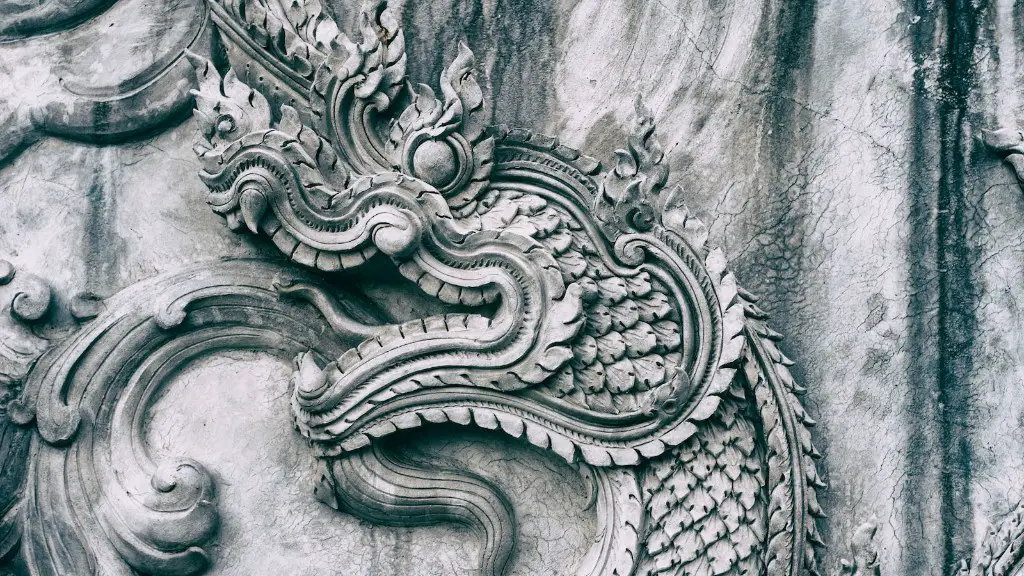Introduction of Hinduism and Dietary Restrictions
Hinduism is one of world’s oldest religions, with over one billion followers. For centuries, religious practices and beliefs have been passed down through generations. Dietary restrictions and vegetarianism play a major role in the Hindu philosophy. There is no one-size-fits-all answer to the question of what constitutes a Hindu diet, as there is a beautiful diversity within Hinduism.
Vegetarianism in Hinduism
Vegetarianism is an important part of Hinduism. The Bhagavad Gita, one of Hinduism’s holy texts, explains that a plant-based diet is good karma and helps one attain spiritual growth. Hindus believe that a vegetarian diet is important to leading a compassionate life and creates less suffering in the world. Ultimately, meat eating is seen as a violation of the laws of ahimsa, or non-violence.
It is widely accepted that a vegetarian diet is healthier than one including meat. A vegetarian diet is lower in saturated fats and cholesterol than a diet including meat, and is linked to lower rates of obesity, heart disease and certain types of cancer.
It is important to note that not all Hindus are vegetarian. There are some Hindus who do not adhere to strict vegetarian rules, choosing instead to include meat in their diet. They often draw their beliefs from Hindu scriptures that suggest that a vegetarian diet can lead to greater purity and strength, though there are many Hindus that do not identify as vegetarian. Regardless of dietary habits, Hinduism upholds respect for all living things and discourages violence toward animals.
Ahimsa and Dietary Restrictions
The principle of ahimsa is central to Hinduism, and one of the main reasons for vegetarianism in Hinduism. Ahimsa is the principle of non-violence and respect for all living things. It is seen as a type of universal love, in which harm to any creature, big or small, is forbidden. Ahimsa is an idea that extends beyond vegetarianism and informs how Hindus live their lives.
This idea of non-violence is present in the concept of dietary restrictions found within Hinduism. While some Hindus may not follow a vegetarian diet, most Hindu diets are largely plant-based. Many Hindus avoid beef and alcohol, as both are seen as violating the principle of ahimsa.
The cow is also a highly sacred animal in Hinduism, and it is seen as a symbol of loving kindness. As such, Hindus believe that eating beef is a form of disrespect to the divine qualities of the cow and should therefore be avoided.
Food Preparation and Religious Rituals
In addition to religious beliefs, Hinduism also has strict rules when it comes to the preparation of food. A variety of rituals and customs are involved in preparing food, depending on the region of India and individual family traditions. Many Hindus prepare and eat food in a particular way as a way to honor their faith.
In Hindu households, certain foods may be considered impure and are not prepared. Impure foods often include garlic and onions. Additionally, some foods may be seen as too hot or too cold and should not be eaten, while some spices may be seen as too intense or spicy. Generally, foods with a heavy preservative and artificial coloring should be avoided.
Food is often seen as a form of offering to the gods. Hindus may offer food to their various gods before eating it themselves. This ritual, called prasad, demonstrates reverence and respect for the gods, and serves as an important reminder to Hindus that their wants and needs come second to the needs of their gods.
Role of Food in Hinduism
Food has a special significance in Hinduism. Food is seen as a sacred vessel that carries the energy of both the ingredients and the cook, and serves as a reflection of the spiritual and physical world. Food is seen as nourishment for the body and soul and a means to express ones love and devotion to their gods.
Preparation of food is an important ritual in Hinduism, and the ingredients used and the way in which the food is presented reflect this. Hindu restaurants often serve dishes meant to embody the many diets that constitute Hinduism. The cuisine includes a variety of regional dishes, influenced by various elements such as geographical location, religious practices and family traditions.
Practicing Moderation in Hinduism
Hinduism also emphasizes eating with moderation, as overeating is believed to cause physical, mental and spiritual imbalances in one’s life. The idea is to consume only what is essential and necessary, while avoiding excess. It is believed that moderation in eating can lead to greater awareness and spiritual connection.
Additionally, some Hindus may practice fasting as a spiritual discipline. Hindus may fast on specific days or for specific reasons, such as for religious events or for purification and detoxification. Fasting can vary in duration, from hours to days. Typically, these fasts involve abstaining from certain foods or activities, such as eating certain foods or consuming alcohol.
Conclusion of Hindu Diet
In conclusion, Hinduism has a variety of dietary restrictions and beliefs that influence the way Hindus lead their lives. Vegetarianism is an important part of Hindu belief, following the principle of ahimsa and creating less suffering in the world. Many Hindus are also mindful of the way food is prepared, often involving rituals and guidelines to adhere to standards of purity. Additionally, moderation in eating is an important principle of many Hindus. Ultimately, Hindus practice dietary restrictions to respect their beliefs and live a life of balance and awareness.
